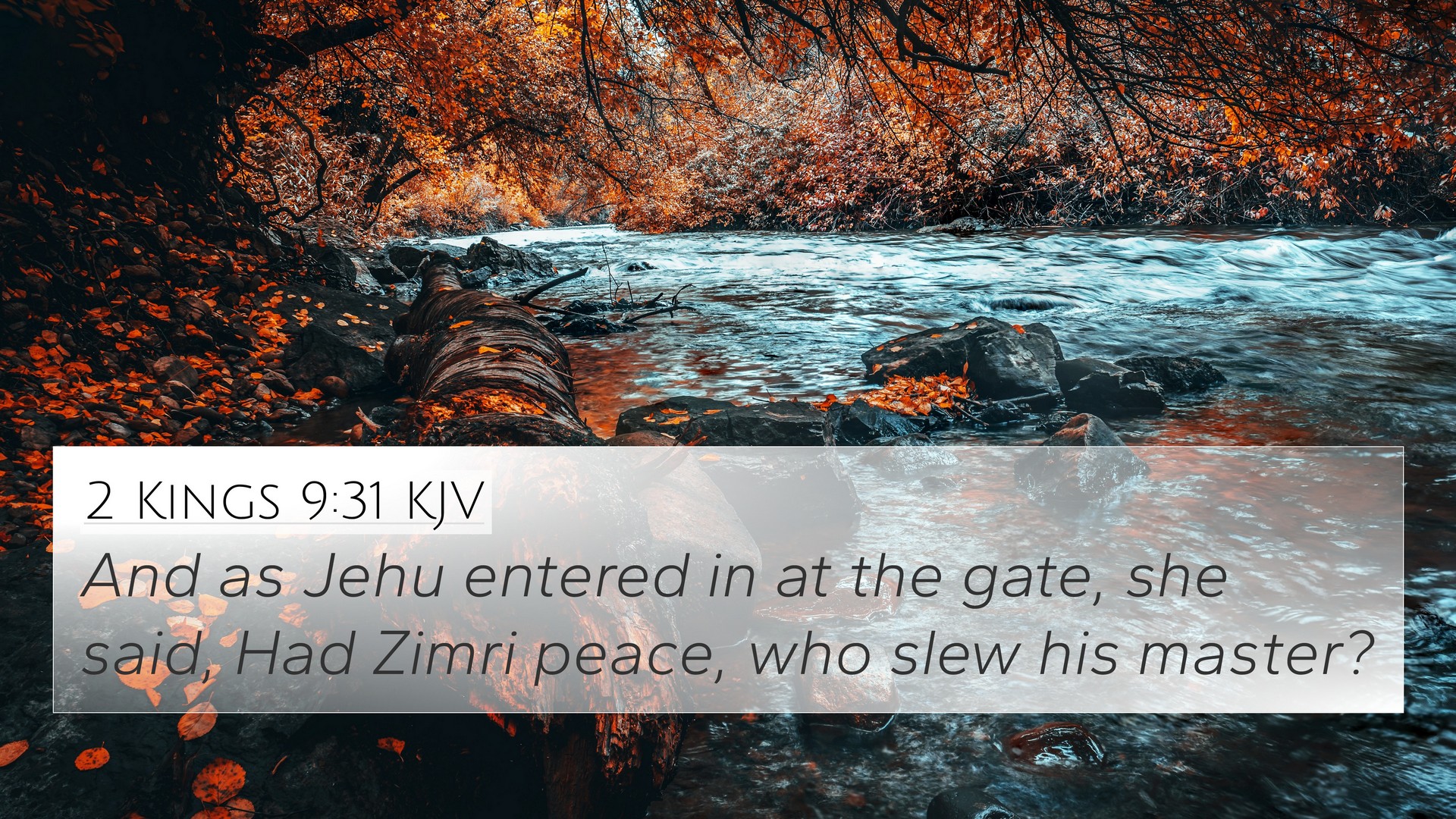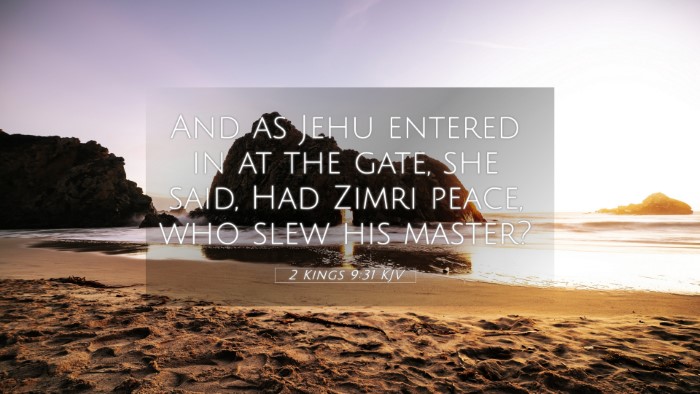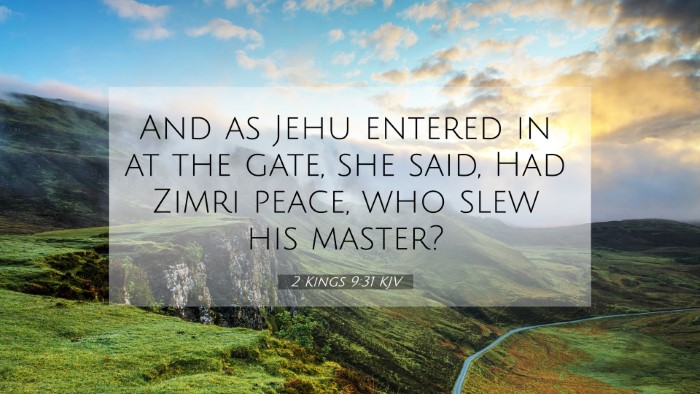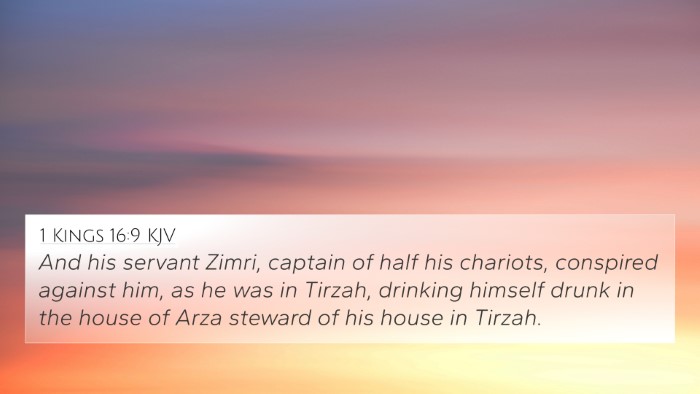Understanding 2 Kings 9:31
Verse Reference: 2 Kings 9:31 - "As Jehu entered the gate, she said, 'Is it peace, you Zimri, murderer of your master?'"
Summary of the Verse's Meaning
This verse captures the bold confrontation between Jezebel and Jehu. Jezebel, the wife of King Ahab, recognized Jehu’s intent to usurp power. By referencing Zimri, who assassinated his king and reigned for only a week, she not only accused Jehu of treachery but also attempted to undermine his authority by likening him to a fleeting usurper.
Commentary Insights
-
Matthew Henry:
Henry emphasizes the contempt Jezebel had for Jehu, showcasing her wickedness and arrogance. Despite her manipulation and evil deeds, she boldly meets her fate, indicating her knowledge of Jehu's intentions. This confrontation signifies the divine judgment against her wickedness.
-
Albert Barnes:
Barnes notes that Jezebel's reference to Zimri reflects her awareness of the political dynamics and her desperate attempt to maintain influence. His commentary shows how her defiance in the face of impending doom serves to highlight her downfall.
-
Adam Clarke:
Clarke interprets Jezebel's question as a mix of defiance and despair. By calling Jehu 'Zimri,' she attempted to belittle his claim to kingship, and her fear is masked by bravado. Clarke emphasizes the dramatic irony of her situation, as she is unaware of the prophetic judgment that has come upon her.
Cross-References to 2 Kings 9:31
This verse can be examined in relation to several other passages that help elucidate its meaning:
- 1 Kings 16:8-20: The account of Zimri's reign and downfall provides context for Jezebel's taunt.
- 2 Kings 9:7: Jehu's anointing as king underscores the significance of his actions against Jezebel.
- 1 Kings 18:4: This verse illustrates the prior prominence of Jezebel’s influence and her actions against the prophets of the Lord.
- 2 Kings 9:10: The promise of judgment against Jezebel sets the stage for the events unfolding in this passage.
- Revelation 2:20: Jezebel is symbolically referenced in the New Testament as a figure representing false teachings.
- Jeremiah 22:17: Discusses the consequences of disregarding righteousness, similar to Jezebel's actions.
- 2 Chronicles 22:10-12: Provides insight into Jezebel's legacy and its implications on her descendants.
Thematic Connections and Interpretations
This verse also offers thematic connections within the Biblical narrative:
- Divine Judgment: The broader theme of God's judgment against wickedness is evident in Jezebel’s fate.
- Leadership and Usurpation: Jehu's rise to power indicates a recurring theme of divine sovereignty over kings.
- Gender and Power: Jezebel's assertion of authority challenges societal expectations and reflects on the complexities of power dynamics.
Conclusion
Through 2 Kings 9:31, we see a pivotal moment that encapsulates themes of judgment, power, and defiance. This verse serves as an important junction in understanding the historical and theological underpinnings of the narratives surrounding Israel's monarchy.
Connecting 2 Kings 9:31 with Other Scriptures
To fully grasp the implications of this verse, it is beneficial to utilize Bible verse cross-references as a method of study. By exploring connections between Bible verses, one can reveal the deeper messages woven throughout the scripture.
In conclusion, 2 Kings 9:31 not only illustrates the downfall of one of Bible’s notorious figures but also serves as an example of cross-referencing Biblical texts to enhance understanding and draw parallels across the scripture.



